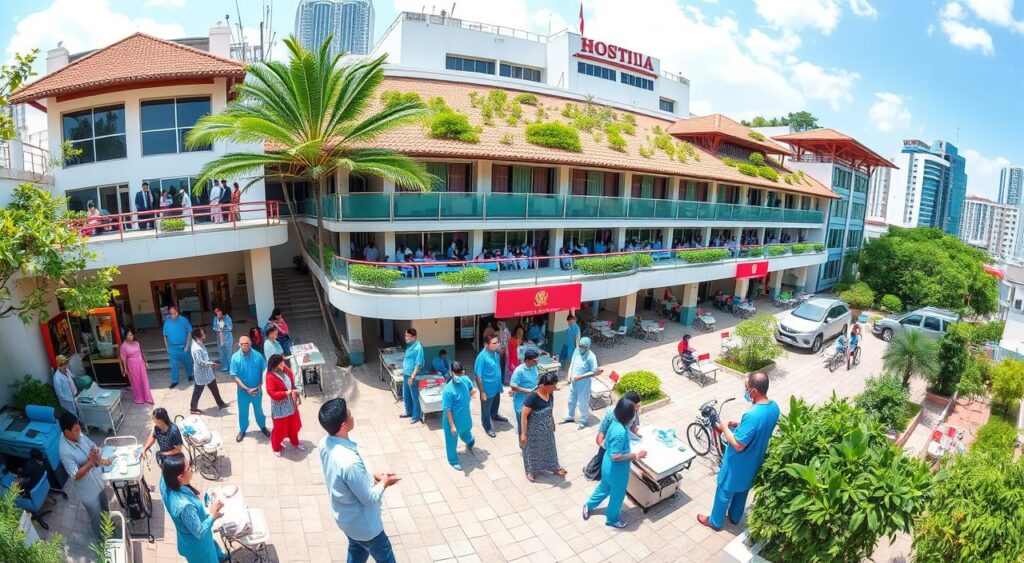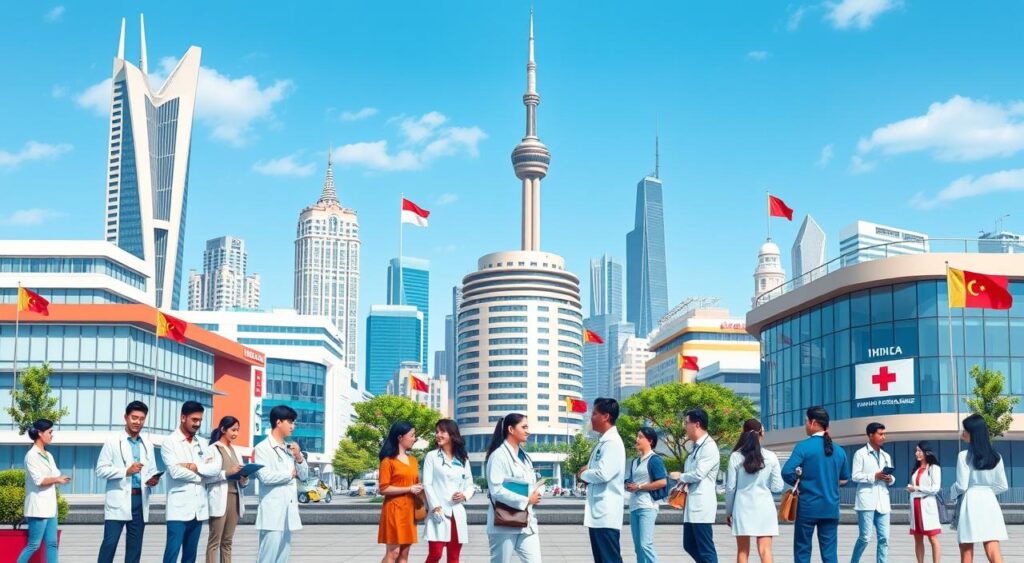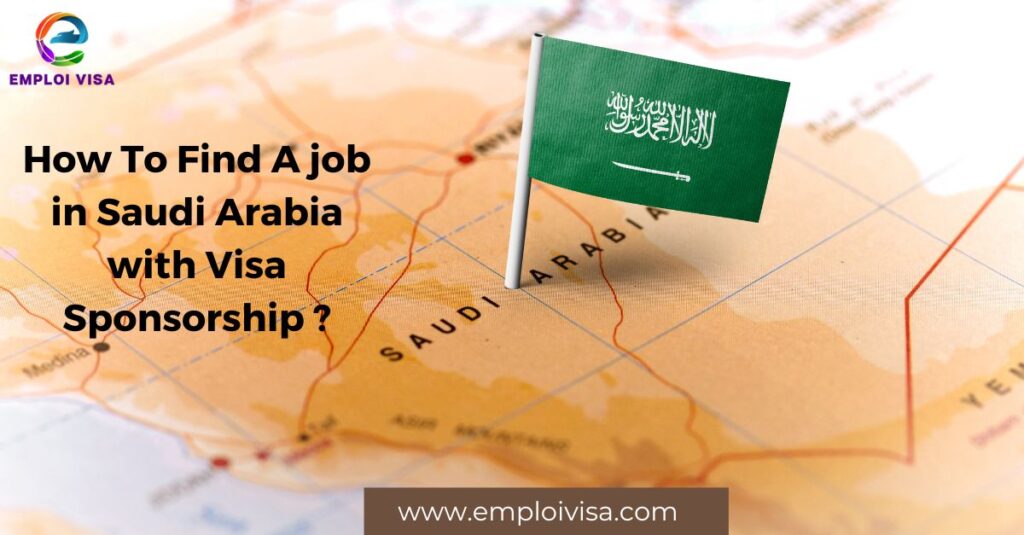
The healthcare industry in Asia is booming, with a huge need for skilled medical professionals. This creates many visa sponsorship opportunities for those looking to work abroad. The region faces challenges like aging populations and growing medical tourism, leading to a big demand for healthcare workers.
From nurses and doctors to medical technicians and specialists, the need is vast. Governments and private healthcare providers are looking for talent worldwide. This is a great chance for healthcare professionals to find rewarding jobs, gain cultural experience, and help communities in Asia.
Key Takeaways
- Asia’s healthcare industry is experiencing a surge in demand for skilled medical professionals
- Aging populations, expanding medical tourism, and infrastructure development are driving the need for qualified healthcare workers
- Governments and healthcare providers are actively recruiting talent from around the world to fill these positions
- Visa sponsorship opportunities offer healthcare professionals the chance to work in diverse and rewarding international settings
- Exploring Asia’s healthcare job market can open up exciting career paths and cross-cultural experiences
Current Healthcare Landscape in Asian Countries
Asia’s healthcare systems face big challenges as developing nations try to meet growing demands. The region’s diverse economic and social landscapes show a mixed picture. Some countries are making great strides in healthcare, while others struggle with shortages and limited access.
Growing Healthcare Needs in Developing Asian Nations
Many developing Asian countries are seeing fast population growth, urbanization, and more chronic diseases. This surge in healthcare needs is often faster than the systems can keep up. Governments are trying to expand primary care, improve disease prevention, and invest in modern facilities.
Impact of Aging Population on Healthcare Demands
Asia is also facing the challenge of an aging population. Countries like Japan, South Korea, and China have more elderly citizens. This aging population puts a big strain on healthcare systems, as older adults need more medical services. Policymakers are looking for ways to adapt healthcare infrastructure for this growing segment.
Healthcare Infrastructure Development
To meet these evolving needs, many Asian countries are investing in major infrastructure projects. They are building new hospitals, clinics, and investing in digital health technologies. However, the pace and success of these efforts vary across the region.

Despite challenges, Asia’s healthcare landscape is changing and improving. The demand for skilled healthcare professionals remains high, even with shortages. Understanding Asia’s healthcare environment is key for those considering visa sponsorship opportunities.
Top Asian Countries Offering Visa Sponsorship for Healthcare Professionals
Asia’s need for skilled healthcare workers is growing fast. This has led many countries to look for international talent. They offer visa sponsorship programs, which are great for medical professionals looking for jobs in the region.
Singapore is a top choice for best countries for medical jobs in Asia. It has a top-notch healthcare system. The city offers several visa options, like the Employment Pass, for up to two years, with renewal possible.
Japan and South Korea are also key players in Asia’s healthcare scene. Their aging populations have increased the need for skilled medical staff. These countries have visa-sponsored medical positions to attract global talent. Japan’s Specified Skilled Worker visa and South Korea’s Employment Permit System are popular choices.
Malaysia and Thailand are also working hard to attract foreign healthcare workers. Malaysia’s Foreign Professional Talent program and Thailand’s Medical Hub Initiative aim to meet their healthcare needs.
“The combination of aging populations and expanding healthcare infrastructure in Asia has created a unique window of opportunity for medical professionals seeking international experience and best countries for medical jobs in Asia.”

If you’re a doctor, nurse, or allied health professional, Asia has many visa-sponsored medical positions for you. Knowing the specific needs and visa rules of these countries can help you find a rewarding job in Asia’s healthcare sector.
Visa Sponsorship for Healthcare Professionals in Asia: Where the Demand Is
The healthcare scene in Asia is changing fast. This means more jobs for skilled healthcare workers. If you’re looking for visa sponsorship, knowing what you need is key.
Required Qualifications and Experience
Healthcare jobs in Asia often need a bachelor’s or master’s degree. You also need several years of experience. Some countries might ask for extra certifications or training. It’s important to check the healthcare job requirements in Asia before you apply.
Licensing Requirements by Country
Getting a visa can be tricky because each country has its own rules. Some accept international medical licenses, while others might need you to pass exams or register. Knowing the medical licensing abroad rules for your chosen country is vital.
Salary Expectations and Benefits
Salaries for healthcare jobs in Asia vary a lot. They depend on your experience, the country, and the job. Generally, international healthcare salaries are good, with benefits like housing help, medical insurance, and chances to grow professionally. It’s smart to look up typical international healthcare salaries for your dream job and location.
“The demand for skilled healthcare professionals in Asia is growing rapidly, and visa sponsorship opportunities are abundant for those who meet the necessary qualifications and licensing requirements.”
Application Process and Documentation Requirements
Getting a visa for healthcare jobs in Asia can be tough. To apply successfully, you need to gather many documents. These documents should show your skills and experience. Knowing what each country or job needs is key.
First, you’ll need to send in your education papers. These prove you’re trained in medicine. You might also need to show your work history with letters from old bosses. And, you’ll likely have to take a language test, like IELTS or TOEFL, to show you can speak the local language well.
Required Documents for Visa Application
- Educational certificates (medical degree, nursing diploma, etc.)
- Proof of work experience (letters of recommendation, employment contracts)
- Language proficiency test scores (IELTS, TOEFL)
- Valid passport and other personal identification documents
- Medical examinations and clearance certificates
- Police clearance or criminal background check
Remember, what you need can change in different places. So, do your homework well. This will help you with your visa application for healthcare workers and medical job applications in Asia.
“The key to a successful visa application for healthcare workers in Asia is being prepared with the required documents for international medical positions.”
Knowing what documents you need and how to apply can help. This way, you can get the medical job applications in Asia you want, with visa support.
Challenges and Considerations for Healthcare Professionals Moving to Asia
Moving to an Asian country is both exciting and challenging for healthcare professionals. The opportunities are great, but there are many things to think about. It’s important to understand the culture, language, and work-life balance in Asia’s healthcare world.
Cultural adaptation in healthcare is a big challenge. Asian cultures are very different from Western ones. Healthcare workers need to learn about these differences to work well with patients and colleagues.
Language barriers for medical professionals are also a big issue. Many Asian countries have their own languages. Knowing the local language helps a lot in working with patients and team members.
Finding a good work-life balance in Asian healthcare is hard. The work culture in Asia is demanding, with long hours and high expectations. Healthcare workers must find ways to take care of themselves while doing their job well.
To deal with these challenges, healthcare professionals can try a few things:
- Take cross-cultural training and get to know local customs and practices
- Learn the local language or use interpreters to talk with patients and colleagues
- Set clear work hours and responsibilities to keep a healthy balance
- Look for support from other expat healthcare workers or local groups
- Be open, patient, and flexible during the adjustment period
By tackling these challenges, healthcare professionals can have a successful move to Asia. The rewards of cultural learning, professional growth, and personal development make it all worth it.
Conclusion
The healthcare scene in Asia is growing fast and changing a lot. This growth means big chances for medical experts looking to grow their careers and find new challenges. The Asian healthcare market is getting bigger, offering many chances for those ready to help.
Healthcare workers have a great chance to look into new career paths in Asia. They can grow professionally and make a real difference in healthcare systems in fast-changing Asian countries. With many visa programs and a high need for skilled healthcare workers, the future looks bright.
The future of healthcare in Asia is looking good for those ready to take on new challenges. Healthcare professionals can use their skills to help shape the future of healthcare in these exciting regions. They will help improve communities and advance the medical field.
FAQ
What are the top Asian countries offering visa sponsorship for healthcare professionals?
Countries like Singapore, Japan, South Korea, Malaysia, and Thailand are at the top. They are looking for international medical talent to meet their healthcare needs.
What qualifications and experience are required for healthcare professionals seeking visa sponsorship in Asia?
The needed qualifications and experience differ by country. Generally, you need relevant degrees, professional licenses, and work experience. It’s key to check the specific licensing needs for each country.
What can healthcare professionals expect in terms of salary and benefits when working in Asia with visa sponsorship?
Salaries and benefits for healthcare jobs in Asia with visa sponsorship are often good. The cost of living, demand for certain specialties, and the reputation of the healthcare institution play a role. Benefits might include housing help, health insurance, and chances for professional growth.
What are some of the challenges and considerations for healthcare professionals moving to Asia?
Moving to Asia comes with challenges like adapting to a new culture and language. You’ll also face unfamiliar healthcare systems and balancing work and life. Being open to cultural differences, learning the local language, and finding ways to thrive in your new role are crucial.
What is the application process and documentation required for healthcare professionals seeking visa sponsorship in Asia?
The application process requires a detailed package. This includes your education, work experience, language skills, and any needed licenses. It’s vital to research the exact requirements for your chosen country and healthcare institution, as they can vary.





